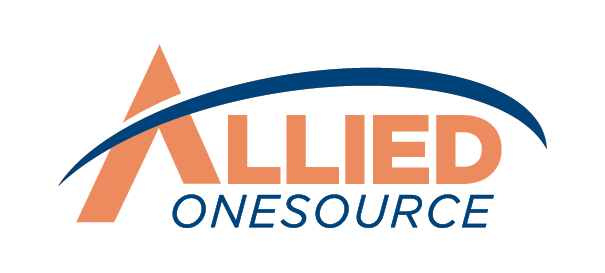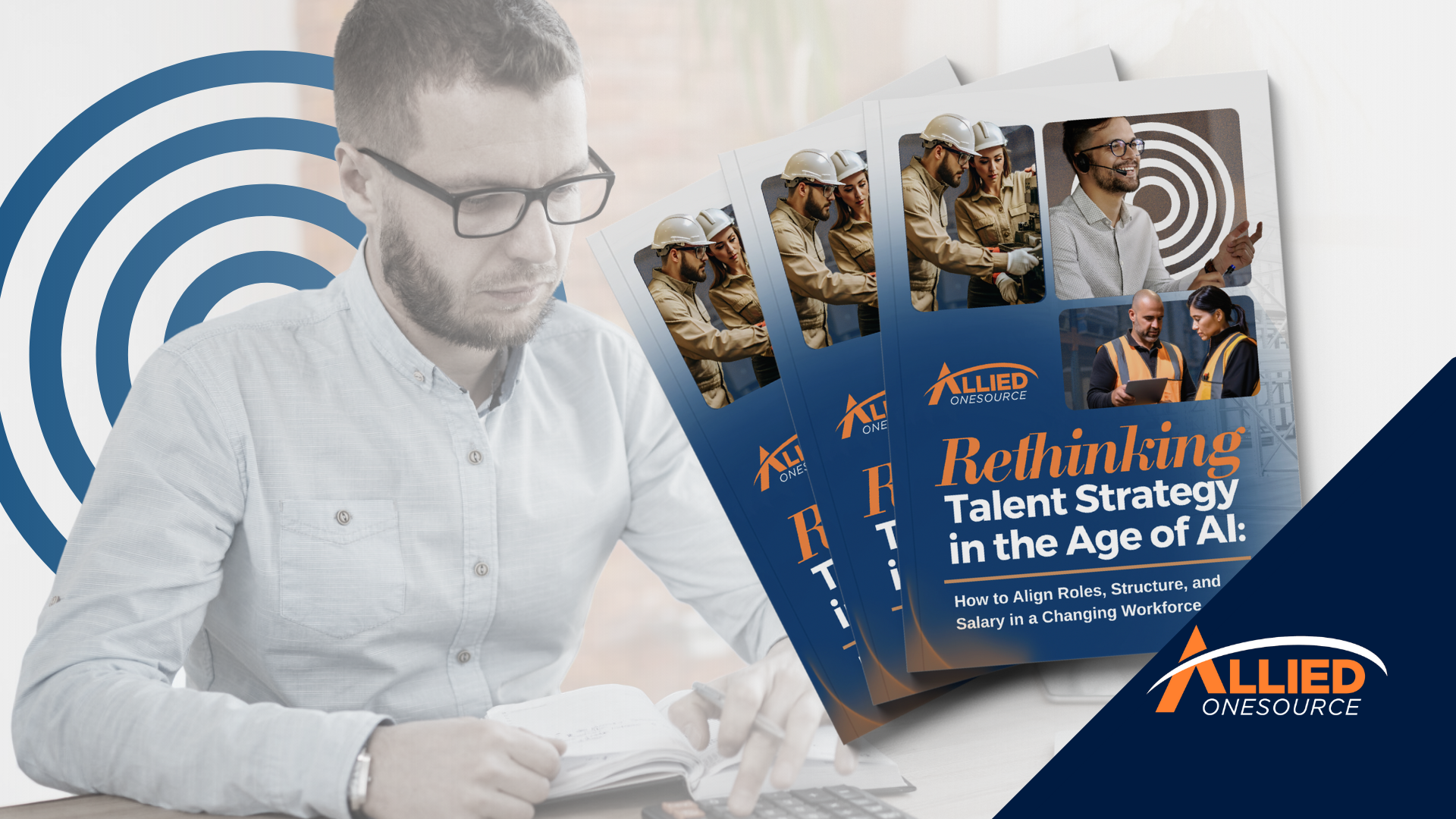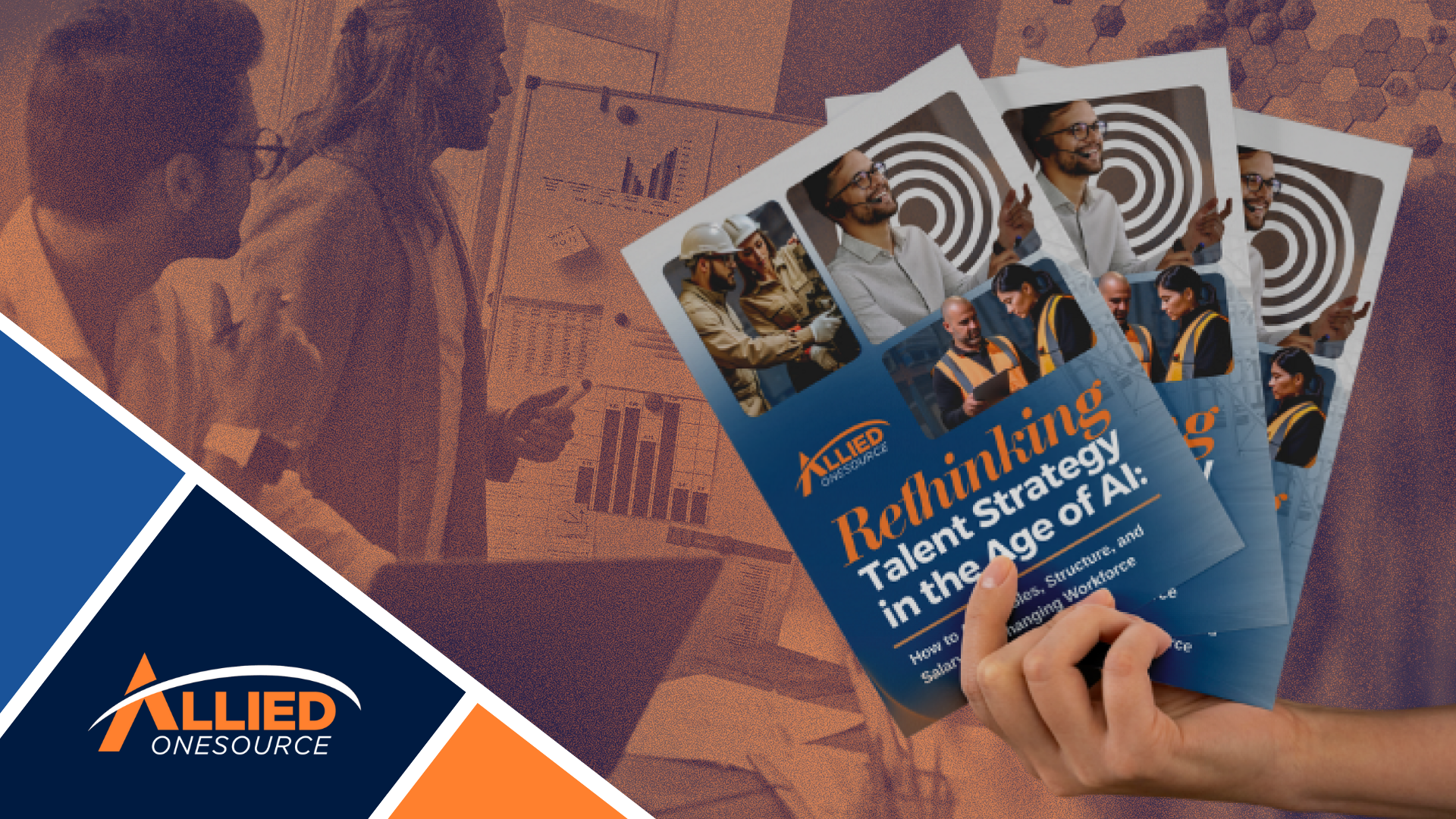What to Include in Your Resume
Are you struggling to stand out in your job search? At Allied OneSource, we allow job seekers to submit their resumes, which helps us aid them in their search for their next career move. But what exactly is a resume? What do you need to include on your resume? And why does it matter? Think of it as your one-page elevator pitch, introducing your skills and background while politely requesting an interview.
A resume is a focused summary of professional accomplishments. It's your chance to paint a full picture of why you're the perfect fit for the job. Remember, an excellent resume can make all the difference in today's competitive job market. Ready to craft a resume that opens doors? Let's explore the components you should include in your resume.
6 Sections to Include in Your Resume
The truth is that recruiters spend an average of six to seven seconds quickly reading your resumes.¹ This means you need to catch their attention fast with the right, strategic order of sections.
Having a generic resume is another mistake.² For instance, listing job titles and dates without elaborating on key tasks and achievements fails to showcase your professional experience effectively. Moreover, overlooking this detail could mean missing job opportunities, as recruiters often include specific keywords in their job postings. Here’s what you should include in your resume.
1. Contact Information
Your contact information should be at the top of your resume, where the recruiter or hiring manager can easily find it when they need to reach you.
This section should only include:
- Full Name
- Personal Phone Number
- Professional Email Address
- Job Title You're Applying For
Including your social media handles, professional website(s), or professional headshots is optional. However, only include these things if you believe they would boost your chances of getting hired or if they were directly requested in the job description.
Be mindful that some employers do pre-employment social media screenings. Even though you don't include your social media handles in your resume, they may still look you up. If you don't put your accounts in private, they can pull up even your non-professional posts.
Select only your best, most professional accounts to be open to the public and put the others in private to increase your chances of getting interviewed.
2. Summary
The professional summary is your chance to immediately grab the recruiter's attention by concisely highlighting your most relevant qualifications. Rather than a personal introduction or statement of goals, focus on demonstrating your value through concrete examples that align with the role.
- Focus on skills and experience that match the job requirements. Briefly showcase your top abilities and work experience that are directly transferable.
- Quantify achievements whenever possible using numbers and metrics. This provides tangible evidence of the impact you made in previous roles.
- Tailor the summary of each position by emphasizing the specific skills and achievements that are most valuable to that employer. This personalized approach shows how you fit well in their system or role.
- Keep it concise—around 3-5 sentences. Recruiters have limited time, so make every word count.
- Utilize strong action verbs to showcase your accomplishments actively, impactfully. For instance, instead of writing 'Responsible for managing a team,' consider 'Led a cross-functional team to exceed quarterly targets.
- Proofread carefully to ensure no errors, as polished writing reflects professionalism.
A well-crafted summary is a powerful initial hook. It quickly validates your qualifications and motivates the recruiter to continue reading your full resume.
Read More: 10 Personal Traits to Describe in Your Resume
3. Work Experience
Your work experience section allows you to go into more comprehensive detail on your professional background and its relevance to the role. Recruiters analyze this closely to evaluate your career path and skill progression.
- List roles in reverse-chronological order, most recent job first. This allows key, up-to-date experiences to be showcased upfront.
- Include position title, company name/location, and employment dates to clarify roles.
- Use 3-5 bullet points per role to summarize key responsibilities, accomplishments, and specialized skills utilized.
- When possible, quantify achievements with metrics like percentages, numbers, dollar amounts, etc. These specifics prove impact.
- If applicable, include notable research projects, publications, or certifications demonstrating expertise.
- Volunteer experience can also be mentioned if it expands relevant competencies.
You construct a strong proficiency narrative by highlighting relevant, results-driven experiences with specifics. However, exclude irrelevant roles, short stints, or obvious gaps if they detract from your qualifications for this opportunity.
4. Education
Provide the dates of your education in reverse chronological order. If you have limited to no relevant work experience for the job you’re applying for, describe your education before your work experience.
For this component, you should include:
- Class of degree (Associate's, Bachelor's, Master's, etc.)
- Name of the degree
- Dissertation title
- Relevant coursework or classes
- Professional qualifications earned
- Top academic achievements relevant to the role
5. Skills
For the skills component of your resume, you want to describe your key skills and accomplishments. The skills you include in this section will depend on your industry, the position you’re applying for, and your background. Research relevant skills in your industry and carefully read the job description to figure out what skills to include.
According to Jobscan, 35 percent of small organizations, 66 percent of large companies, and 97 percent of Fortune 500 companies use applicant tracking systems (ATS).³ This means using the right keywords that match those listed on the job post matters now more than ever. Relevant keywords will help screen your resume and improve your chances of being invited for interviews. In this section, include:
- Relevant Skills
- Soft Skills
- Hard Skills
- Any Foreign languages
- Applicable Technical Skills
- Certified Skills
- Tools or Applications You Use for the Job
- Proficiency Level for Each Skill (Basic, intermediate, advanced, or expert)
To further demonstrate your skills, you can list projects where you used your talents and skills and the results from those projects. For instance, if you're applying for a project management role, you might highlight a project where you successfully led a team to complete a complex task ahead of schedule, resulting in a 20 percent cost savings for the company.
6. Added Sections
Added sections in your resume should be more targeted at the specific audience you’re addressing. Within this component, you can describe your professional certifications, awards, training, publications, and other relevant information. It would also look good if you mentioned your network of professional references to show that people are willing to vouch for you and your work.
Your resume is a document that goes into further detail than your resume about who you are as an employee and where you’ve come from. It also shows what you’ve learned throughout your career path and how you can be an asset to the company. Include only relevant things about the job and show off how you differ from other candidates.
When organizing your resume, maintain consistent formatting and use professional styling. Remember that because you want to make your resume a bit more personalized for each role you’re applying for, you may have numerous versions and drafts to create to make a resume that properly shows you.
Related Article: 5 Ways to Separate Yourself from Other Candidates
ALLIED ONESOURCE CAN HELP YOU FIND YOUR NEXT JOB
Looking for your next job?
Allied Onesource is the source for all the advice and insights you need to elevate your job search. We can also help you find the best employers that match your skills in Light Industrial, Administrative, Management, Warehouse, Service Desk, and more.
Contact us today and we'll discuss how you can achieve the next big step in your career.
References
1 "CAREER HANDBOOK." University of Nevada, Las Vegas, www.unlv.edu/sites/default/files/media/document/2023-03/CareerServices-CareerHandbook.pdf. Accessed 11 Mar. 2024.
2 Heyse, Leon. "The Most Common CV Mistakes." LinkedIn, 19 Sept. 2023, www.linkedin.com/pulse/most-common-cv-mistakes-leon-heyse/.
3 "What Is An ATS? 8 Things You Need to Know About Applicant Tracking Systems." Jobscan, 25 Jan. 2024, www.jobscan.co/blog/8-things-you-need-to-know-about-applicant-tracking-systems/











